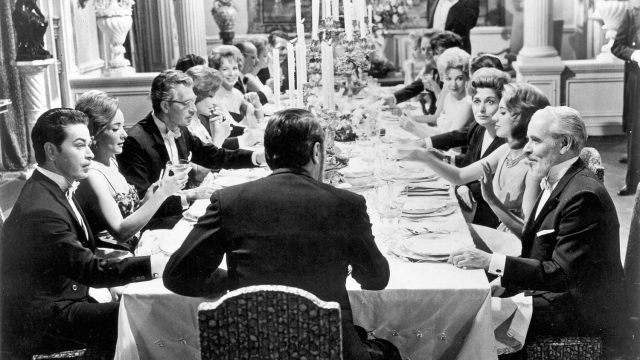Spanish filmmaker Luis Buñuel enjoyed satirizing the upper classes. He’s arguably the medium’s finest surrealist, using bizarre scenarios to highlight how they had the same vices as anyone else, despite their formal appearances. His movie The Exterminating Angel combines a bottle episode with almost a post-apocalyptic attitude – how will they survive when their society breaks down?
Only this isn’t some end-of-world scenario, from climate change or nuclear war – it’s the far more mundane never-ending dinner party. Their “breakdown” means everyone is too polite to leave at first, and they are trapped without their servants to take care of them. Such a breach of their order results in madness, illness, and death.
Wisely, Buñuel never explains why they can’t leave. Initially, they just don’t, and the inertia of staying becomes its own social force. Being the first to leave would be rude. The usual rules of etiquette, which are in theory supposed to make people behave themselves, become the invisible prison. Protocol is more important than survival.
Buñuel often used dinner as centerpieces for his movies. His The Discreet Charm of the Bourgeoisie has the inverse plot of upper class elites constantly trying to eat but are always prevented, and The Phantom of Liberty has people who use the toilet at the table while eating in private. Sharing food is a central part of so many societies, and by upending that practice, Buñuel turns a potential comedy of manners into absurdist farce.
Buñuel was skeptical of all elites, whether social, cultural, or religious. At the end, the dinner guests attend church to praise God for their escape, and right before the priest exits the building, he offers to sing a few more hymns. Once again, the congregation can’t leave, stuck in their bourgeois ritual. The final shot underlines Buñuel’s message – it’s a herd of sheep barging in the front door of the church. It’s not subtle, but it’s funny, giving us one last chance to laugh at their claim to superiority.

